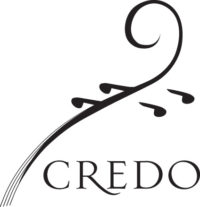by Delaney Meyers

Two college-aged fellowship string quartets participated in the Grafton concert. Credo founder Peter Slowik greeted the residents, revealing his “ulterior motives” to “prove that classical music isn’t boring,” met with a laugh. This casual rapport continued throughout the afternoon, as the residents asked questions about the performances and the students’ career interests.
After Slowik’s eccentric introduction, the first ensemble launched into the second and fourth movements of Debussy’s String Quartet. The residents were intensely attentive, many appearing to lose themselves in the swirling, impressionistic music, closing their eyes or furrowing their brows during the darker moments. After a round of immediate and enthusiastic applause, Slowik asked if there were any questions about the music. One resident raised his hand and said, “Didn’t that piece change time signatures a lot?” — an astute observation that many audiences might not have picked up on.
After several more questions, cellist Maya Enstad and violist Anders Cornell (members of the second quartet) performed Beethoven’s jovial “Eyeglass” duo. Written for two of his friends, it’s dripping with humor and even sarcasm. Despite not having touched the piece since April, which Slowik noted before their performance, Enstad and Cornell were very entertaining and in good spirits as they played. They seemed to be thoroughly enjoying themselves, and the residents clearly appreciated this, often laughing at the more ridiculous moments in the piece.
Transitioning from traditional classical music, the second quartet played several arrangements of Beatles tunes and other popular songs, some with improvised embellishments. They started with a lovely rendition of Yesterday, and followed with Imagine Dragons’ Radioactive, Gershwin’s Summertime, and Scott Joplin’s The Entertainer, which several men said they had played on the piano before. The Beatles’ Eight Days a Week was played by popular demand, and almost turned into a full-blown sing-a-long. I joined the quartet on violin for a brief fiddle tune composed for the Danish String Quartet, and they ended with the ever-popular Hey Jude, which received a standing ovation.
As Slowik explained, this concert was doing double-duty both as an outreach event and as an advertisement for the pilot program Credo will begin at Grafton this fall, where they will use donated instruments to provide music lessons for interested residents. The initial program will involve volunteers from Credo and from Oberlin Conservatory, and Slowik hopes to develop a sustainable plan moving past Spring of 2019, perhaps with a Conservatory class devoted to the effort.
Published on ClevelandClassical.com July 31, 2018.
Click here for a printable copy of this article


